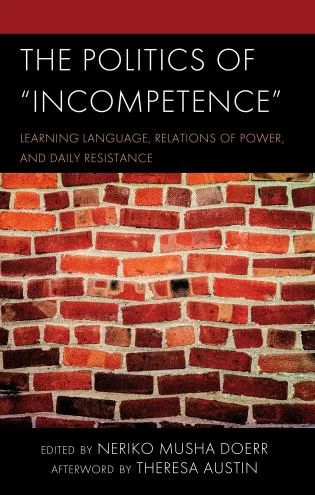Keiko Konoeda’s new work examines how a sense of competence or incompetence impacts engagement in digital storytelling
How do the language learners’ perceptions of competence or incompetence impact their engagement in a digital storytelling project? In a chapter of the new work, The Politics of Incompetence: Learning Language, Relations of Power, and Daily Resistance, edited by Neriko Musha Doerr, Lecturer Keiko Konoeda analyzes three narratives from students in her Japanese language class to explore what shaped the three students’ varied approaches to digital storytelling. This analysis highlights the role of plurilingual repertoires—learners’ diverse language backgrounds— and the ideologies embedded in different language teaching approaches in shaping their identities. In this work, Keiko sheds light on the complex dynamics of language learning, emphasizing the importance of valuing students’ multifaceted linguistic resources and critically examining classroom ideologies.
One reviewer wrote, “Recognizing that ideologies of language are embedded in second language instruction, the contributors to this deeply thoughtful collection ask us to consider ‘incompetence’ in a new way. The authors challenge readers to move beyond the usual instrumental goal of teaching language as a static, abstract object to be mastered by urging us to value idiosyncratic and messy language learning experiences. Detailed case studies from different ethnographic contexts forward the argument that language learning is a journey that should engage with forms of incompetence as a productive resource.”
— Laura Miller, University of Missouri-St. Louis
Konoeda, K. (2024). Identities of (in-)competence and plurilingual repertoires: Three stories of digital storytelling in a Japanese language classroom. In N. M. Doerr (Ed.) Politics of “incompetence”: Learning language, relations of power, and daily resistance (pp. 49-80). Rowman & Littlefield.
Faculty Featured

Keiko Konoeda
Lecturer in Japanese


